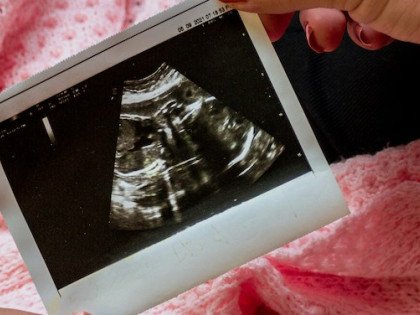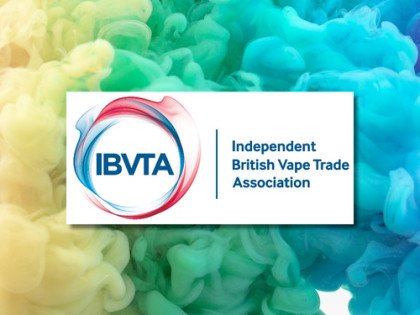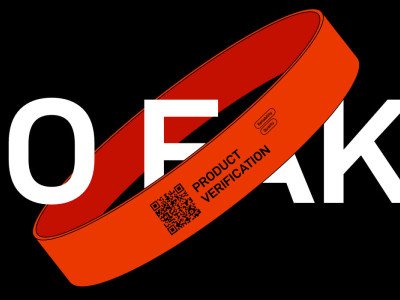Scientists compared the output from three Blu eCigs products and two SKYCIG products with Marlboro Gold Box, Lambert & Butler Original and Menthol cigarettes.
“The products used in the study were evaluated for content and delivery of major ingredients (glycerin, propylene glycol, water, and nicotine) and for select constituents (carbon monoxide (CO), carbonyls, phenolics, volatile organic compounds (volatiles), metals, tobacco-specific nitrosamines (TSNAs), polyaromatic amines (PAAs), and polyaromatic hydrocarbons (PAHs).”
Although difficult to read from the image contained in the paper, the text states: “e-Cigarette aerosol is more like the study air blank than cigarette smoke for cigarette smoke constituents tested.”
The authors concluded that: “Testing of the e-cigarette aerosol indicates little or no detectable levels of the harmful and potentially harmful constituents tested. Overall the cigarettes yielded approximately 3000 μg/puff of the HPHCs tested while the e-cigarettes and the air blanks yielded <2 μg. Small but measurable quantities of 5 of the 55 HPHCs tested were found in three of the e-cigarette aerosol samples at 50–900 times lower levels than measurable in the cigarette smoke samples. Overall, the deliveries of HPHCs tested for the e-cigarette products tested were more like the study air blanks than the deliveries for the conventional cigarettes tested.”
The team state that although the products tested, collection parameters, and analytical methods are not in common, the results are very consistent with those found by Burstyn (2014), Cheng (2014), Goniewicz et al. (2014), Laugesen, 2009 and Theophilus et al., 2014. They also make reference to the following studies: Etter, 2010, Polosa et al., 2011, Polosa et al., 2014, Caponnetto et al., 2013, Dawkins and Corcoran, 2014 and Hajek et al., 2014.
It leads them to lay claim that the “results obtained in the aforementioned studies and in the present work broadly support the potential for e-cigarette products to provide markedly reduced exposures to hazardous and potentially hazardous smoke constituents in smokers who use such products as an alternative to cigarettes.”
ACSH’s Dr. Gil Ross said: “I really have nothing much to add to the study’s summary and abstract. You get out what you put in, and e-cigarettes by and large have only a few chemicals, so there’s just not that much to breathe, either in or out. I am certain this study will change no minds in the hotbeds of anti-e-cig propaganda, mainly because the results do not conform to their agenda, but also because the authors work for Big Tobacco. In my opinion, this study merely confirms the results others have noted many times before” - referring to the study by Igor Burstyn.
All great news then? Well, there is a rather large caveat to this study: it was conducted by Lorillard Tobacco Company employees on Lorillard Tobacco Company products. A shame then that such findings will not find the same coverage that more dubious ones do.
Dave Cross
Journalist at POTVDave is a freelance writer; with articles on music, motorbikes, football, pop-science, vaping and tobacco harm reduction in Sounds, Melody Maker, UBG, AWoL, Bike, When Saturday Comes, Vape News Magazine, and syndicated across the Johnston Press group. He was published in an anthology of “Greatest Football Writing”, but still believes this was a mistake. Dave contributes sketches to comedy shows and used to co-host a radio sketch show. He’s worked with numerous start-ups to develop content for their websites.
Join the discussion
Expert Reaction to Pregnancy Study
Experts have reacted to the QML study of impacts of vaping in pregnancy and comparison with smoking
Study: Vapes Help Pregnant Quitters
A new study from Queen Mary University of London finds that vapes help pregnant smokers quit and pose no risk of poor pregnancy outcomes
IBVTA responds to UCL study
The Independent British Vape Trade Association has responded to University College London research and said the findings show the Government’s smoke-free ambition is stalling
Cochrane Review Echoes Swedish Success
The Cochrane Review echoes the Swedish approach, finding less harmful alternatives like vaping are superior to other quit methods, says Smoke Free Sweden







-listing400.jpg)



